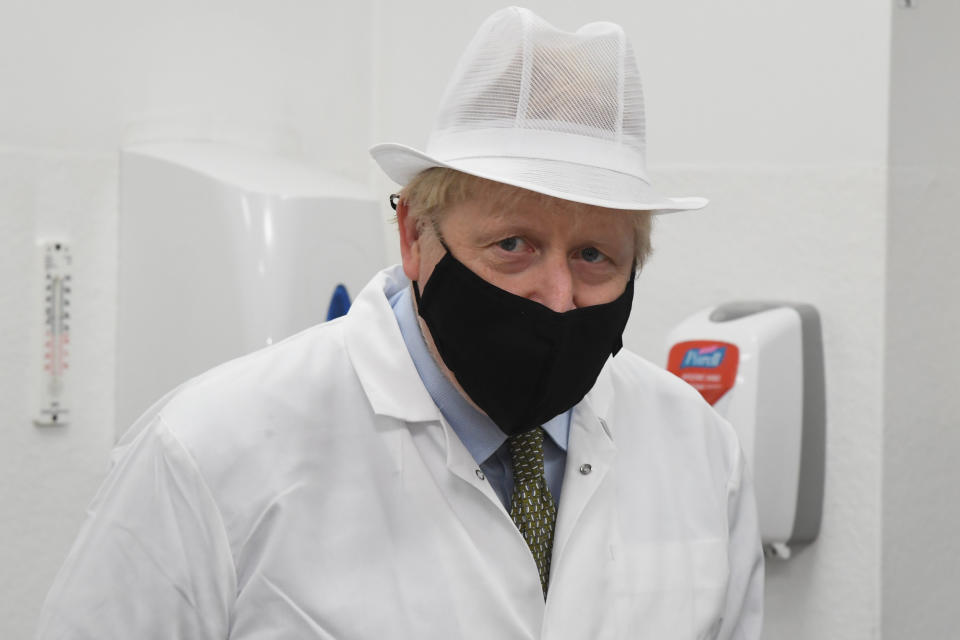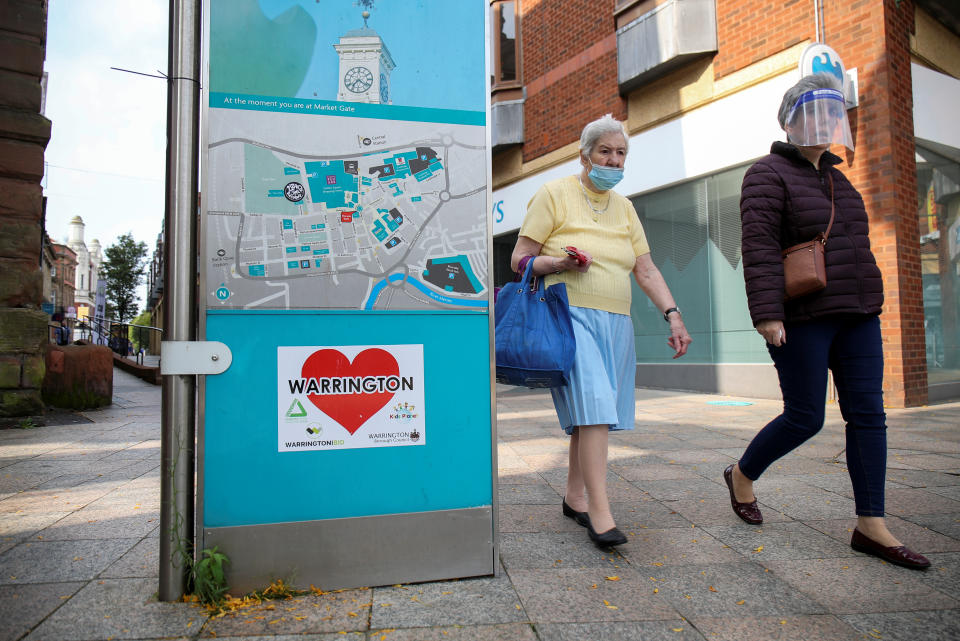COVID data deaths fall for fourth day in a row as cases top 20,000

Coronavirus deaths have fallen for the fourth day in a row – but daily infections have topped 20,000 again.
On Monday, the government said 102 people had died within 28 days of testing positive for COVID-19.
This was down from 224 on Friday, 174 on Saturday and 151 on Sunday.
It comes as hundreds of thousands more people will be placed under the most stringent coronavirus restrictions after ministers confirmed a deal to put Warrington and Nottingham into Tier 3.
As of 00.01 on Tuesday, pubs and bars in Warrington will have to close unless they serve meals and households will be banned from mixing indoors or in private gardens and beer gardens.
Betting shops, adult gaming centres, casinos and soft play centres will also close as part of the decision to put Warrington’s 210,000 population into the highest alert level in England.

Hours later, the government also confirmed that Nottingham and parts of the surrounding county will also move into Tier 3.
People living in the city, along with Rushcliffe, Gedling and Broxtowe, face the toughest restrictions, which come into force at one minute past midnight on Thursday and will expire after 28 days.
The area will join Liverpool City Region, Greater Manchester, Lancashire, South Yorkshire and Warrington in Tier 3.
In an interview on Monday, Health Secretary Matt Hancock said areas under Tier 3 restrictions would have to prove that their infection rate was “coming down”, especially among those aged 60 or over, before they could be removed from the strictest measures.
UPDATE: Warrington will enter the 'very high' risk local COVID alert level (tier 3) at 00.01am this Tuesday, 27 October: https://t.co/1LXvfCCsW8 pic.twitter.com/bOyolNCf0v
— Warrington Borough Council (@WarringtonBC) October 24, 2020

He has also refused to rule out bringing in a tougher set of Tier 4 impositions following reports another level is being considered to tackle England’s rise in infections.
Asked about the criteria for an area to exit Tier 3, Hancock told BBC Radio 4’s Today programme: “The first thing that’s most important is that the case rate has to be coming down. And in particular we look at the number of cases amongst the over-60s because that’s the number that is likely to translate into hospital admissions and sadly into deaths.”
Hancock also suggested a vaccine would not provide an escape route from the social restrictions until next year.

He told Today it was his “central expectation” that the mass roll-out of any vaccine would be “in the first half of next year”.
NHS England confirmed on Monday a further 91 people who tested positive for coronavirus have died in hospital in England, bringing the total number of confirmed deaths reported in hospitals to 31,910.
The patients were aged between 44 and 95 and all had known underlying health conditions, with the majority passing on or after October 23.
Read more: 'More than one coronavirus vaccine will be ready in early 2021'
The death toll update comes as the Government faced criticism for looking at the possibility of easing the rules for people ordered to self-isolate after coming into contact with someone who had tested positive for the disease because of low levels of stay-at-home compliance.
Paul Hunter, professor of medicine at the University of East Anglia, told the Today programme it “would certainly increase the risk of transmission” because people infected in the last stage of the incubation period would be “allowed to be back out in public.”
But Cabinet minister Mr Hancock pointed to France as an example of where a similar measure had been introduced and said any changes would be “about the overall clinical judgment” of what was necessary.
I’m literally Raging & in tears 😢🤯😡 @Tesco how the hell is beer essential and PERIOD PRODUCTS are Non essential 😡!!!! @WelshGovernment this is RIDICULOUS #walesinlockdown #coronavirus @piersmorgan pic.twitter.com/3ZK8pPsD92
— Nichola-Louise 💞🏴💞 (@nicholasmith6) October 26, 2020
Meanwhile, Wales’s Health Minister Vaughan Gething has said he was “saddened” to hear of an incident in which a woman was incorrectly told she could not buy sanitary products at a Tesco store due to the firebreak lockdown.
Tesco has apologised over the error and said an aisle selling sanitary items at one of its stores was temporarily closed due to a break-in.
The Welsh Government is currently reviewing its ban on the sale of non-essential items during the two-week lockdown.
Watch: Can you catch coronavirus twice?
Coronavirus: what happened today
Click here to sign up to the latest news and information with our daily Catch-up newsletter


